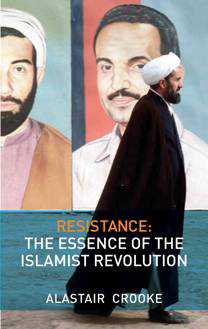Nathan Gardels
Editor, NPQ, Global Services of Los Angeles Times Syndicate/Tribune Media

ISTANBUL — The effort to forge new forms of non-Western modernity in the Muslim world has pushed Iran into bloody civil strife while Turkey swirls with persistent rumors of military plots against the Islamist-rooted government. The great historical question is whether, at the end of the day, Iran will look more like Turkey, or Turkey like Iran?
As the legendary M16 agent Alastair Crooke argues in his new book, Resistance: The Essence of the Islamist Revolution, the Iranian revolution was a direct consequence a half century later of the forced secularization of the Ottoman Caliphate by Kemal Ataturk. With the superstructure of the Muslim ummah dismantled and replaced with the Turkish nation-state, insurgent religious movements, from the (Sunni) Muslim Brotherhood in Egypt to the Shiite imams of Qum and Najaf, moved into the vacuum to reclaim Islam from the shadow of Western modernization.
Paradoxically, Ataturk’s whole modernization project is today being recalibrated by the ruling Islamist-rooted (Justice and Development) AK party, which is seeking to reintroduce piety into public life while projecting Turkey as a neo-Ottoman regional power in the Muslim Middle East instead of a mere NATO appendage or European supplicant. At the same time, Iran, the other regional power, is moving in the opposite direction: the Twittering partisans of popular sovereignty are locked in a battle with their theocratic guardians over the legitimacy of power in the Islamic Republic.
What goes around comes around, it seems. The reaction to the Great Transformation of early 20th century modernization may have given rise to what Crooke calls the “Great Refusal” of the Islamist resistance. But now the legacy of the Great Transformation in Turkey as well as the Great Refusal in Iran are facing the reverse challenges of bringing faith back into the public realm on the one hand, and democratizing a religious state on the other.
The historical cross currents are complex. In Turkey, one AK Party leader told me, by way of allaying suspicions about an Islamist takeover, that “without its Western orientation, Turkey would be just another Muslim country.” Yet, a publisher friend worries that “without the military guarding Turkey’s secular institutions, the Islamists would take over tomorrow.” And yet again his 20-something daughter, despite the ever more prevalent sight of headscarves on the street, shrugs her bare shoulders doubtfully at the idea of Turkey ever becoming a repressive religious society like Iran.
In Iran, the very idea of an Islamic Republic, borne out of the 1979 revolution, is coming apart. What we are witnessing is a contest between the Shiite idea of an imamate, where, essentially, God is the head of state, versus the Republic, in which the people rule. What happens to the legitimacy of the state when the people, through their democratic institutions, disagree with God? How can this contradiction at the very heart of the constitutional arrangement of the Islamic Republic ever be resolved?
For all its grumblings and even rumblings, the military that stands behind secularism in Turkey has not so far frustrated the democratic aspirations of the religious resurgence there. In Iran, the Revolutionary Guards that are protecting theocracy have done just that: they have sought to crush the assertion of popular sovereignty.
The clerical establishment aligned with the Revolutionary Guard in Iran won’t be easily dislodged from power. Yet, once they’ve felt their power in the streets, as in 1979, neither will the people accept the suppression of their rights. By reasserting his authority after the election through brutal repression, Ayatollah Khameini has undermined the legitimacy of his rule. It may be a long, slow erosion, but the repression of legitimate aspirations is always the beginning of the end for any system of governance.
For now, the Turkish experiment in creating a non-Western, post-secular order seems more sustainable because it respects the will of the people. That is now the challenge for Iran.
Source: www.huffingtonpost.com, June 20, 2009
‘This book is required reading at a time when alternative perspectives on the causes of global terrorism and new Western diplomatic initiatives urgently need to replace the failed policies of the Bush administration-led “War on Global Terrorism”.’–John L. Esposito, professor of International Affairs and Islamic Studies at Georgetown University and co-author of Who Speaks for Islam? What a Billion Muslims Really Think

Leave a Reply